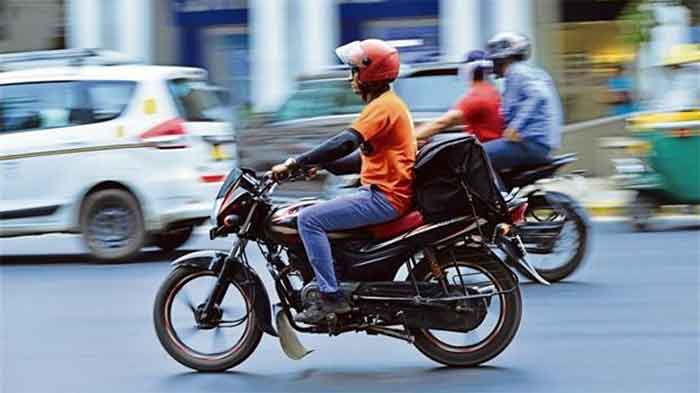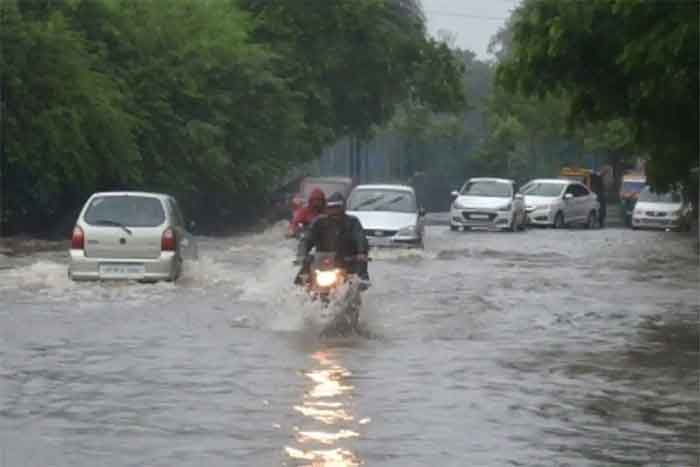
They are workers but without any formal “employment”. They do work but have no jobs. They might sport Zomato or Swiggy t-shirts and caps. But they are not their workers. Nor are these firms their employers. Some might own their cabs but pay a hefty commission to taxi aggregators like Ola and Uber solely because passengers hire them through these aggregators. They have a new name—they are called gig workers.
They work and live under precarious conditions. Nevertheless, this category of workers witnessed maximum employment expansion during the Covid-19 pandemic when almost all other categories of employment, be they formal or informal, shrank.
Take the case of Zomato. 486 restaurants were registered with Zomato Hyperpure in India in 2019. The number went up by more than fourfold to 2256 in 2020, the year the pandemic set in. And again, it went up another four-fold to 9225 in the peak pandemic year of 2020–21.
Flipkart, Snapdeal and Myntra ushered in e-commerce in India in 2007. Still, online commerce remained marginal in retail business. It was the launch of Amazon India in 2013 that revolutionized e-commerce. Zomato made a modest beginning in food delivery on online orders in Gurgaon in 2008 and Swiggy was launched in Bangalore in 2014.
Motorcycle-borne young workers, sporting branded company T-shirts, started crisscrossing urban landscapes in India in tens of thousands. They were delivering everything from gadgets to groceries and fashion wear to food. Until five years ago, they still numbered less than one million. Now they number 8 million. Bulk of this expansion took place during the pandemic years.
Last year, a Boston Consulting Group report said the number of gig workers in India would catapult from 8 million to 24 million in the next 3 years. The total number of gig jobs could soar to 90 million in 9-10 years. In comparison, the IT sector in India employs 4.5 million today and is expected to just double in the next ten years. However, the new gig workers sector represents the mushrooming of low-productivity and low-income jobs. The IT sector accounts for 8% of the GDP now but the gig economy is expected to account for only 1.5% of the GDP even after 10 years.
Pandemic’s Mixed Impact
 Economic theory says when the demand for workers is high their wages would move upwards. But, paradoxically enough, while the number of gig workers boomed under the pandemic, their earnings and service conditions nosedived. Take the case of Husseini in Bangalore. He was working for food delivery major Zomato. Before the pandemic, he was doing 22–23 deliveries per day with each delivery fetching him Rs.25. Thanks to the massive invasion of new workers who took to delivery work in the backdrop of widespread job losses during the pandemic, the number of deliveries he could make came down to 7 or 8 per day. Later, it improved to 11 or 12 only. For a brief spell, Bangalore witnessed the bizarre phenomenon of even laid-off IT workers taking to delivery work.
Economic theory says when the demand for workers is high their wages would move upwards. But, paradoxically enough, while the number of gig workers boomed under the pandemic, their earnings and service conditions nosedived. Take the case of Husseini in Bangalore. He was working for food delivery major Zomato. Before the pandemic, he was doing 22–23 deliveries per day with each delivery fetching him Rs.25. Thanks to the massive invasion of new workers who took to delivery work in the backdrop of widespread job losses during the pandemic, the number of deliveries he could make came down to 7 or 8 per day. Later, it improved to 11 or 12 only. For a brief spell, Bangalore witnessed the bizarre phenomenon of even laid-off IT workers taking to delivery work.
Husseini is not alone in facing such pandemic-driven deterioration in working conditions. Anil, who worked for Swiggy in East Delhi, also reported that the number of deliveries he could make came down by half to 12 or 13 only. The incentive was Rs.60 after every 5 deliveries and he would be happy if he could receive Rs.180 as incentive nowadays. While Husseini has now left his job with Zomato and taken to delivering online medicine orders, Anil too has quit Swiggy and joined a smaller food delivery company, where he feels the harassment is lesser.
Both Husseini and Anil told Covid Response Watch that they had to pay EMI for their motorcycles besides spending from their own pockets on daily petrol requirements. After spending on petrol, their monthly incomes hovered around Rs. 10,000. It is very difficult to survive with that kind of income in a high-cost-of-living city like Bangalore or even Delhi. Initially, Husseini had to deliver food packets within a range of 3–5 kms only around Bangalore’s Jayanagar area but after the pandemic set in the IT company orders were scarce and he had to travel 14 or 15 kms to deliver food to households in distant Malleswaram too.
Harsh, another food delivery worker in Delhi, however has a different explanation for the dip in service conditions. He told Covid Response Watch, “Initially, during the lockdown, while in-house service was banned in restaurants, food delivery workers were permitted to deliver food at home. Migrants and students trapped in the lockdown tended to order food through food delivery companies, so more workers were hired by these companies. There was a rush for delivery jobs as even factories and offices closed down in Delhi. But that was relatively for a short period only. Overall, as Covid cases and the number of deaths mounted, fearing infection, many customers stopped ordering food from outside”.
Labour Abuse is Rampant
But the main complaint of the workers on working under pandemic conditions is about the harassment they faced. They were abused at many ends. Harsh reported: “After logging in and waiting for a long time, we used to be assigned a delivery order to pick up food from a restaurant near ITO and deliver it at a house in Noida. Total travel would be around 10 kms which could have been completed in half an hour. But there used to be undue delays at the restaurants. Due to lockdown restrictions and departure of migrants, there was a labour shortage. So often we had to wait for an hour to pick up the packet. The customer would abuse us for the delay. The powerful multinational food delivery chain is otherwise powerless against the restaurants. Beyond threatening to bring down their rating points, they could do nothing. The supervisors would only harass us. They would reduce the number of deliveries to those workers who would argue and try to retort at the insults”.
Husseini said that companies had forced the workers to install some app in their smart phones with which the company could trace the exact location of the worker even though their two wheelers did not have GPS systems for satellite-based tracking. A worker in Chennai said, “Though we deliver food to quench the hunger of so many people, we ourselves often used to go starving. The waiters and kitchen workers working in-house in the restaurants used to get free food and tea, at least once a day. But we delivery workers never got any free food or even a cup of tea for ourselves. While on the job, we had to find some hotel on the way and pay from our own pockets, and quickly nibble something, and rush all over again for the next delivery. Even if we drop into our houses to go to the washroom for a few minutes, we would be asked to explain where we were between a particular delivery and the next. Every minute of our activity used to be tracked.”
“We feel deprived when we see our friends working in factories and industries getting annual increments and even festival bonuses. Five years ago I got Rs.25 per delivery. Today I get the same amount. We get nothing for festivals, not even a packet of sweets. Since there is labour shortage on Diwali and Christmas or on Eid, the incentive after 5 deliveries is increased from Rs.60 to Rs.90 just to ensure uninterrupted labour supply. We are also threatened that we would face the music if we failed to report on festival days when there is a rush of orders”, lamented a worker with an e-commerce MNC. Digital era work can be debilitating indeed.
What about personal protection equipment? Harsh says that they were given masks, gloves and sanitisers by the companies. “But they did not do testing. We were forced to go and get tested in government hospitals and get vaccinated at our own expense. They give a water-proof cover for the food packets but we human beings do not get a raincoat. Only if we pay Rs.1500, we would be given a raincoat and two t-shirts with company logo to save ourselves from police harassment”.
“To earn more and more by maximizing the number of deliveries, we often drive at breakneck speed. In case of death in accidents, there was no compensation from the government as we were not tagged ‘essential workers’. Two years ago one Swiggy worker lost a leg in an accident in Delhi. The company did not pay him any compensation for the accident or for the days when he was out of work. We went on a strike and successfully forced Swiggy to offer accident and health insurance for the delivery workers. Now we have insurance coverage upto Rs.4 lakh. Zomato also agreed to provide insurance cover to the workers. But many other small companies do not. Even these majors do not provide insurance cover to all workers in all cities”, he added.
Flash Strikes and Protests
A large number of women gig workers work for some companies like Urban Company (also known as Urban Clap) in Gurgaon, who attend to a host of gig calls from households to perform tasks ranging from hair-do and other beauty services, kitchen assistance like dish-washing, bathroom cleaning and operating washing machines, babysitting and care work for the elderly and the sick and so on during the pandemic when regular domestic workers stopped coming. In December 2021, the women workers of this company went on a flash strike when the company demanded some upfront payment from the workers as deposit for allotment of gig work so that they would not skip work. They also demanded a pay raise from Rs.10,000 that they were being paid. Some of them have protested against sexual harassment at work and lack of security.
There is no regulation of service conditions by the government as there are no legally stipulated labour standards in the first place. So where is the question of enforcement? The Supreme Court has started a hearing on a PIL filed by the noted lawyer Indira Jaisingh which demanded workers’ status to the gig workers. The labour code on social security which is yet to be notified proposes government-provided social security in the form of ongoing paltry insurance schemes only. The e-commerce majors have lobbied with the government to offer them some insurance after agreeing to pay some minimal cess but have apparently influenced the Government to prevent it from declaring their legal status as workers entitled for all other labour rights.
One of the single largest contingents of working India getting denied even the status as workers and thereby the associated labour rights and pandemic relief reveals the shady side of the supposedly shining India!
B.Sivaraman is a researcher based in Allahabad













































